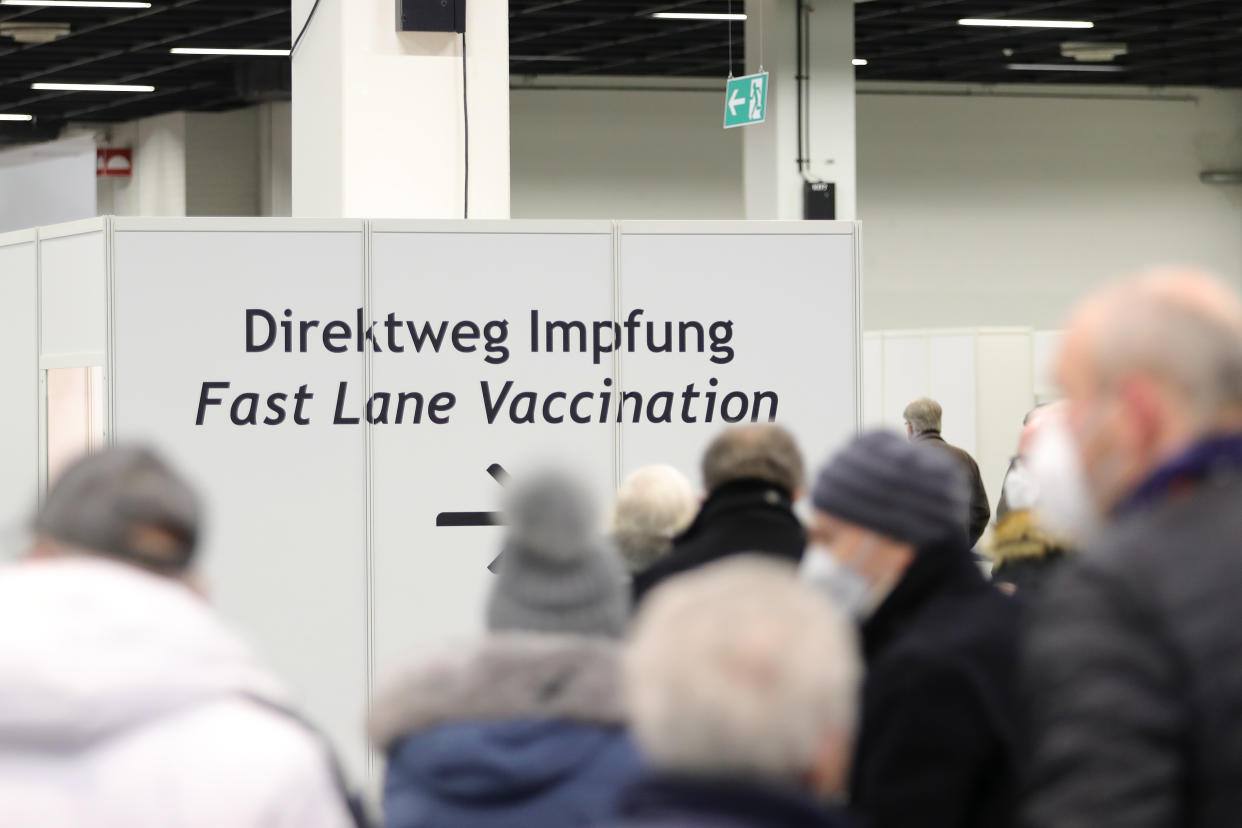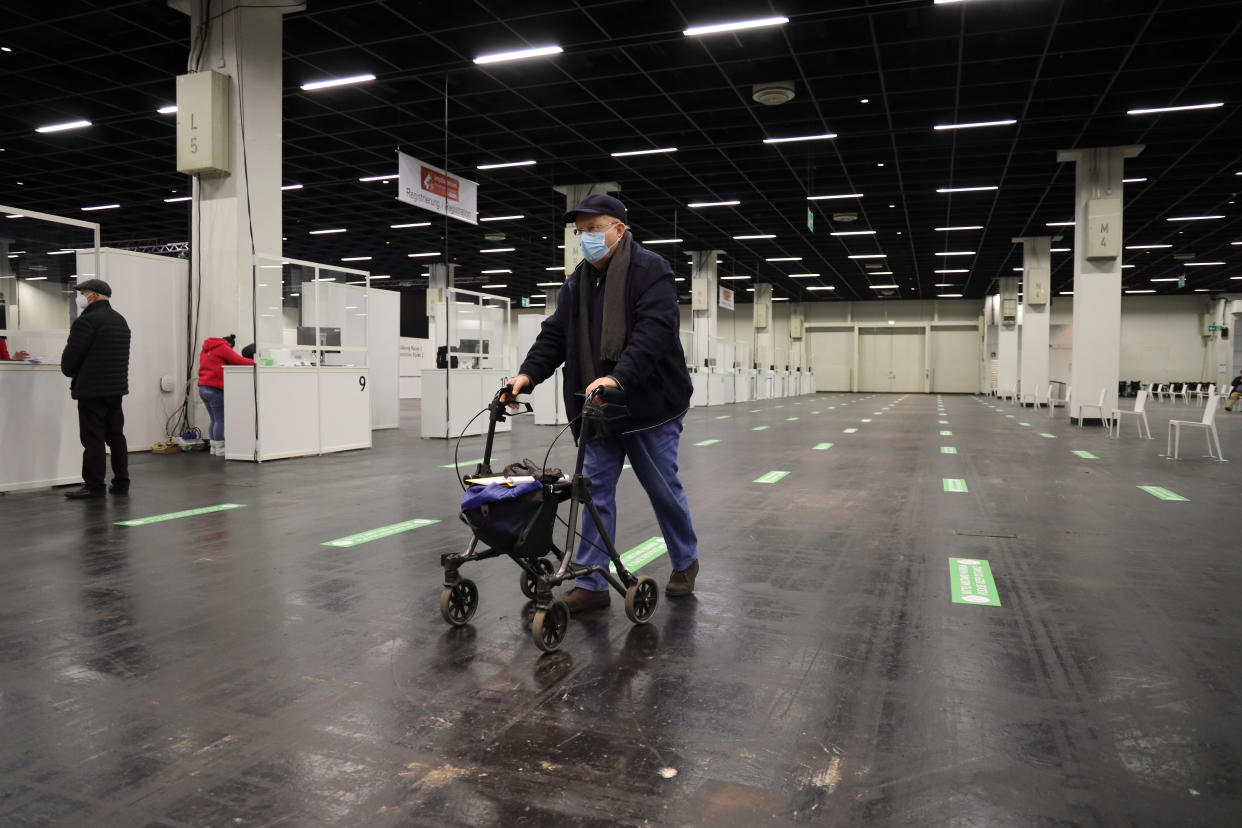Support for EU takes a battering amid vaccine rollout car crash
Public fallout of the EU's botched vaccine rollout has been laid bare by new polling.
Figures show people in European countries think Brussels has mishandled the issue, and the overall rating for the EU has tumbled.
The bloc has seen a fall in ratings across Sweden (down 7 points), France (down 8 points) and Germany (down 24 points).
In total, 51% of Germans thought the EU had done a bad job with vaccines, it was 35% for France and 24% for Sweden, data from Kekst CNC showed.

EU institutions had previously reasonable approval rates among the public since the beginning of the pandemic.
The report says: “Amongst criticism of the vaccine rollout, Europeans are pointing the finger of blame at the EU – especially in Germany, where more than half of people say the European Union has handled the vaccine rollout badly.
“Approval of the EU's performance in the pandemic has also fallen, and in Germany more people now disapprove of the EU than approve of its pandemic response for the first time.”
The European Commission and EU countries have come under fire for missteps in their joint inoculation programme and a slow rollout of shots that has lagged badly behind Israel, Britain and the United States.
The bloc was criticised for being slower to negotiate contracts with vaccine manufacturers.

Britain avoided some of the vaccine supply problems the 27-nation EU had faced — as when AstraZeneca said it hit a production issue - after striking deals earlier.
The UK has also shown speed and agility in other areas.
Its regulatory agency has authorised vaccines more quickly than the EU's, and its government has experimented with stretching out the time between shots — allowing it to roll out first doses faster so more people can have some protection quickly.
The EU has been more cautious on both counts.
While bloc is still getting and distributing vaccine — unlike much of the world — it has so far been left behind the UK.
The Commission said on Tuesday it was considering emergency approvals for COVID-19 vaccines as a faster alternative to more rigorous conditional marketing authorisations which have been used so far.
The potential change comes as the EU executive and the bloc’s drug regulator come under increasing pressure for what some consider slow vaccine approvals, which have contributed to a slower rollout of COVID-19 shots in the 27-nation union, compared to the United States and former EU member Britain.
Vaccine hesitancy has also been a problem in EU nations, especially regarding the Oxford-AstraZeneca jab.
The EU medical regulator approved the vaccine for use in all age groups but some nations, including France, Germany and Italy only allowed its use in under 65s, citing a lack of data.
French President Emmanuel Macron also described the Oxford vaccine as “quasi-ineffective” for older people.
Belgian health institute’s Steven Van Gucht later said Macron was wrong had said “the damage has been done” in regards to people taking up the jab.
The EU was also widely criticised for invoking Article 16 of the Northern Ireland Protocol on 29 January to prevent vaccines from leaving the bloc.
The EU backtracked on the decision, but not before it caused massive political fallout in the UK.
European Commission president Ursula von der Leyen has admitted “mistakes were made” over the EU’s vaccine rollout.
The UK fared much better in the polling after its vaccination programme was praised.
More than 20 million people have had their first jab, and every adult is expected to get at least one dose by June.
On Monday, England’s deputy chief medical officer Prof Van-Tam also set out key findings from Public Health England that showed both Oxford/AstraZeneca and Pfizer/BioNTech jabs were effective in the real world.
The data showed they had 60% effectiveness in preventing illness 28 to 34 days after the jab, reduced the likelihood of hospitalisation by 80%, with the Pfizer vaccine reducing the possibility of death by 85% – data wasn’t available for the Oxford jab.
Data from the Kekst CNC COVID-19 opinion tracker showed 77% of the population thought the government had done a good job on vaccines.


